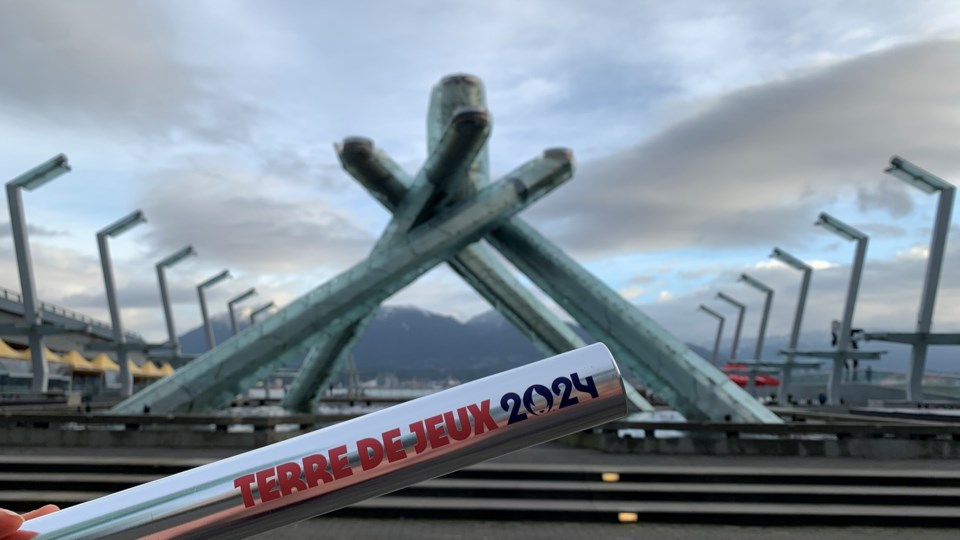With Paris 2024 in full swing, it seems like a good time to look back at Vancouver's history with the Olympics.
While 2010 will (probably) the pinnacle of Vancouver's connections to the games, the city's local athletes have a connection to the games going back a century.
So here are five things you may not know about the Olympics.
1. One Vancouverite won an Olympic gold in the mens 100 m sprint and 200 m sprint over three days
The name Percy Williams may be familiar to some locals, especially the ones who see the statue to the Olympian on the seawall, but his accomplishments took place nearly 100 years ago.
Born in Â鶹´«Ã½Ó³»in 1908, Williams worked as a waiter to make his way to the 1928 Olympics in Amsterdam.
Once there he made the most of his time, becoming the first Canadian to win the 100 m (Bobbie Rosenfeld won silver on the women's side at the same games). Three days later he collected his second gold in the 200 m sprint.
Williams would go on to hold the world record in the 100 m, after setting a time of 10.3 C.
He ended up donating his medals to the BC Sports Hall of Fame, but they were stolen.
Notably, another Vancouverite also held that record; Harry Jerome equalled the record in 1960, which was set at 10 seconds even. Unfortunately Jerome didn't take the gold in the event; his best performance was a bronze.
2. Whistler was built for the Olympics/Bids in the 60s/70s
In 2010 Whistler finally was able to achieve what it was created for.
The area that is now one of the largest and most famous ski resorts in the world was mostly a summer vacation area up until the 1960s.
It was then that Â鶹´«Ã½Ó³»businessmen who were eying a bid at the Winter Olympics decided Whistler would be a good place for the games, in 1968.
Throughout the decade the area was developed into a ski area but the bids never turned into Olympic Games and the idea was shelved, for a bit.
3. A Vancouverite won the first ever gold in any snowboarding event
Born in Vancouver, Ross Rebagliati's name is fairly well known now. While many people remember he won a medal in a (sort of) controversial manner during the 1998 Winter Games, it's easy to overlook it was the very first medal of any sort in a snowboarding event.
The mens giant slalom competition was the first of the four snowboarding events that took place in Nagano, Japan. The women's giant slalom and both halfpipe competitions happened afterwards.
While Vancouver's Philip Kim has the chance to win the first ever for men in breaking at the Olympics, the women's event happens first, with no Canadians competing.
4. The first ever Pride House was at the 2010 Olympics
While national houses have been common at the Olympics for a while, where people can celebrate which ever nation they support, the 2010 Olympics in Â鶹´«Ã½Ó³»was the first ever to have a Pride House for the LGBTQ+ community in town for the games.
While the idea has been continued in some places, like London in 2012 and this year at the , it hasn't been consistent. In Russia the Minister of Justice at the time struck down the idea for one at the Sochi games, and there was no Pride House at the 2022 games in Beijing.
5. The Â鶹´«Ã½Ó³»Olympic torch relay holds a world record
As with every Olympics since it was invented by the Nazis for the 1936 games in Berlin, the torch that lit the cauldron in Â鶹´«Ã½Ó³»went on a massive, international relay.
However, due to Canada's size, that relay set a that is still held; starting in Victoria it travelled more than 45,000 km showing up in 1,000 different communities across the country.



